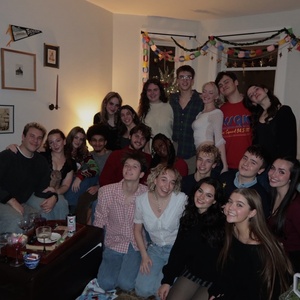1

Student Blog: Making My Grand Entrance Into 2026
It’s time for the curtain to rise on 2026 and make my grand entrance into the new year. For me, 2026 is the year I’ve been looking forward to the most for a long time. So let’s reflect on the past, and jump into the future!
2

3

Student Blog: Showing Up Truthfully
When I first heard the term “academic integrity,” I’ll admit, I didn’t really think much of it. Rules, citations, and avoiding plagiarism…boring stuff. It sounded like a checklist, not something meaningful. But over time, I realized it’s really about honesty. Being honest with yourself, with your work, and with the people whose ideas or efforts you rely on. For me, academic integrity isn’t just about following rules; it’s about showing up fully and truthfully, even when it’s hard.
4

Student Blog: What My Friends Are Teaching Me
As seen in my last blog, I’ve been thinking a lot about self-care and how that can mean different things for different artists. Finding footing at the beginning of a new semester can be difficult, but I’m extremely lucky to be surrounded by such incredible humans whom I can turn to for guidance.